That is the problem I'm trying to solve. (Given a 2n length string of distinct characters I have to divide it in 2 parts in all possible ways without repeating groups).
The method I used is:
- Generate all permutations of string.
- Store acceptable permutations (I am generating "hauy" and "hayu" both but only storing one of them).
- Check newly generated permutations against stored ones to filter out duplicates.
(I realize that there might be better ways of doing this)
#include<stdio.h>
#include<string.h>
#include<stdlib.h>
char *b[100000000];
int bSize = 0;
void print(char *a)
{
int k = strlen(a);
printf("M: ");
for(int i=0 ; i<k/2 ; i++)
{
printf("%c ", a[i]);
}
printf("| B: ");
for(int i=0 ; i<k/2 ; i++)
{
printf("%c ", a[k/2 + i]);
}
printf("\n");
}
void check(char *a)
{
int k = strlen(a);
for(int i=0 ; i<bSize ; i++)
{
int c = 0;
for(int j=0 ; j<k/2 ; j++)
{
for(int m=0 ; m<k/2 ; m++)
{
if(a[m] == b[i][j])
{
c++;
break;
}
}
}
for(int j=0 ; j<k/2 ; j++)
{
for(int m=0 ; m<k/2 ; m++)
{
if(a[m + k/2] == b[i][j + k/2])
{
c++;
break;
}
}
}
if(c == k)
{
break;
}
else
{
b[bSize] = a;
bSize++;
print(a);
}
}
}
void swap(char *a, char *b)
{
char temp = *a;
*a = *b;
*b = temp;
}
void permute(char *a, int start, int end)
{
if(start == end)
if(bSize == 0)
{
print(a);
b[bSize] = a;
bSize++;
}
else
check(a);
else
{
for(int i=start ; i<=end ; i++)
{
swap((a+start), (a+i));
permute(a, start+1, end);
swap((a+start), (a+i));
}
}
}
int main()
{
int n;
scanf("%d", &n);
char f;
scanf("%c", &f);
char A[n];
for(int i=0 ; i<n-2 ; i++)
{
char c;
scanf("%c", &c);
if(c == ' ' || c == 'M' || c == 'B')
i--;
else
A[i] = c;
}
A[n-2] = '\0';
permute(A, 0, n-3);
return 0;
}
When I run this only 1 line is given as output. I think the error is with b[]. In the check function b[0] and a always turn out to be equal. And bSize never goes beyond 1. I am unable to understand why.
